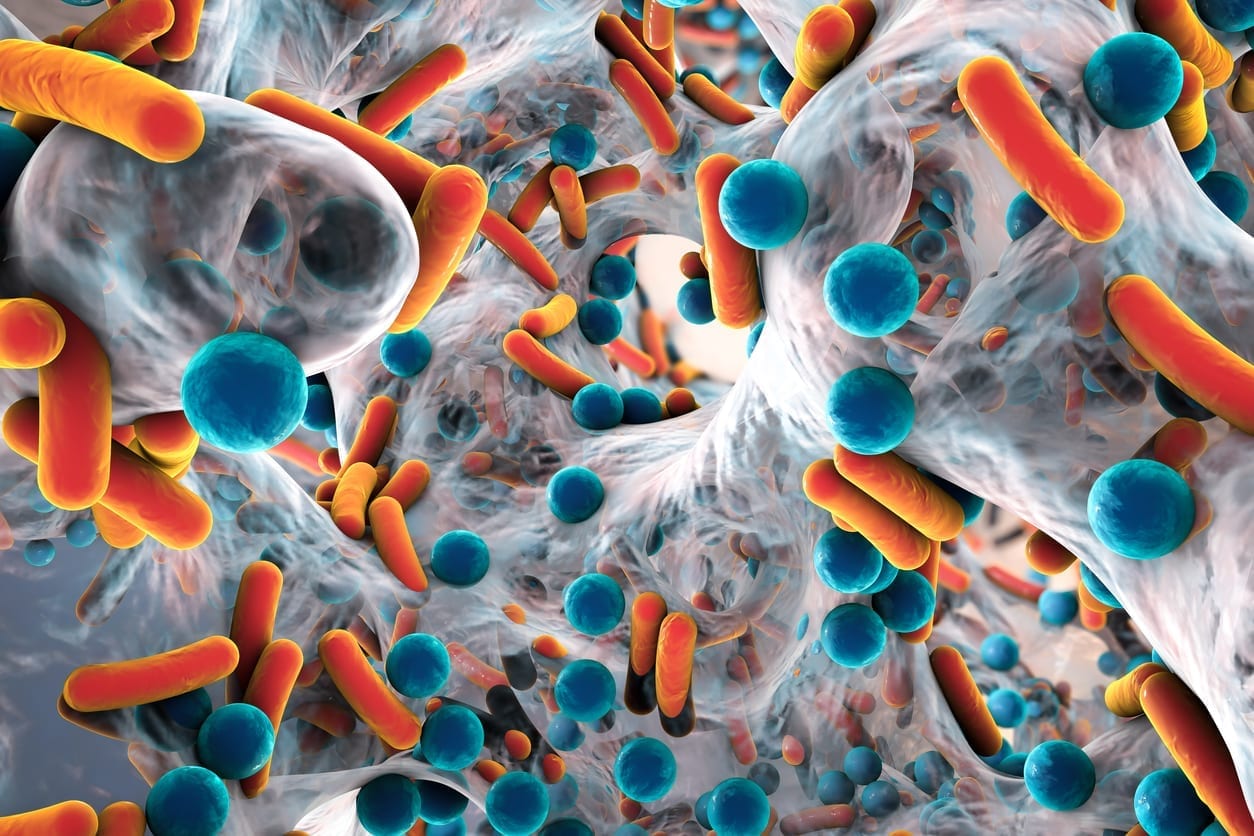When it comes to probiotics, did you know that the strain helps to determine its effect in the body? There are dozens of friendly bacterial strains found in commercial probiotics, and they all help in different ways.
In this blog post, we will get into some of the most beneficial strains for a healthy gastrointestinal tract and more. In addition, we’ll go over a few bacterial strains that can help to alleviate some of our most common health concerns. Let’s jump right in!
Quick Probiotics Refresher
First of all, let’s review something that’s important yet often misunderstood. Probiotic bacteria are classified as Genus – Species – Strain. So if you’re looking at a probiotic label that lists Lactobacillus gasseri KS-13, lactobacillus is the genus, gasseri is the species, and the number after it is the strain code. Knowing the species helps to more closely identify the species characteristics of the bacteria genus. And the strain code provides even more detail on exactly which specific bacteria is in the supplement.
When looking for a probiotic, it helps to find one that contains human bacterial strains. Human strain probiotics don’t actually contain human byproducts or ingredients. They are simply strains of beneficial bacteria that have been found to live in the human digestive tract. This means that they are already adapted to thrive in the gut.
In this same vein, something else you should keep in mind when looking for a probiotic is whether or not its species and strains have been clinically researched—and more importantly, if they have been clinically researched together. Many probiotics claim to be clinically studied, but oftentimes they are referring to clinical studies that have been carried out for each species separately. The best case scenario would be if the probiotic’s combined species have been researched together as they appear in the supplement. This adds to the studies’ validity and ultimately, the supplement’s efficacy.
Why Strains Are Important
There are many kinds of probiotic bacteria, and each has unique functions within the body. It’s important to know what these different strains do, so that when you buy a probiotic you’re buying one that has the specific strains that will be most helpful to your health needs.
Bifidobacterium bifidum: This specific strain can help reduce allergy symptoms like itchy skin, sinus congestion, headaches, and even diarrhea. It does this by discouraging the production of histamine, a chemical that is released in the body to trigger allergic reactions during times of stress or allergy.1
Bifidobacterium longum: This strain may help improve the immune response and help to prevent gut disorders. Research suggests it may also suppress allergies and improve skin health.2
Bifidobacterium infantis: This strain may improve IBS symptoms and help to eliminate E. coli in the gut.3
Lactobacillus gasseri: This strain produces vitamin K, lactase, and anti-microbial substances. It may also help people with lactose intolerance to digest dairy foods. L. gasseri also helps prevent indigestion, diarrhea, and yeast infections.4
Lactobacillus rhamnosus: This strain boosts cellular immunity. It also helps reduce IBS symptoms and may help to prevent recurrent bacterial vaginosis.5
Beyond Gut Benefits
A lot of people think that probiotics are only good for the digestive system. The truth is, probiotics can have beneficial head-to-toe effects.
Allergies: Emerging evidence suggests that probiotics may help prevent and even treat seasonal allergies like hay fever, as well as environmental allergies to things like dust mites.6 Researchers believe that probiotics can help allergy sufferers by modulating the immune system and limiting the release of inflammatory chemicals involved in the allergic response. Most of the research on probiotics for allergies has been done on Lactobacillus and Bifidobacterium bacteria, showing that these probiotics can help with the prevention and reduction of allergy symptoms.
Heart Health: According to the American Heart Association, probiotics may help maintain healthy blood pressure, especially in those already diagnosed with hypertension. Probiotics may also help keep cholesterol in check. Some studies show that one probiotic specifically, L. reuteri, can support a healthy balance between good and bad cholesterol by breaking up bile salts.7
Immunity: Behind digestion, immunity is the second most cited reason people take probiotics. Because the intestines house about 70 percent of the body’s innate immune function, boosting friendly bacteria in the gut can increase the body’s ability to fight off not-so-friendly bacteria. Research shows that probiotics can also cut the duration and severity of cold symptoms.8
Considering everything your gastrointestinal tract does for you, it makes sense to give it some TLC every day with a high quality probiotic, one that contains specific strains customized for your health concerns. Your GI tract will take better care of you, if you take better care of it!
References
- Ku, S, Park MS, Ji GE, et al. Review on Bifidobacterium Bifidum BGN4: Functionality and Nutraceutical Applications as a Probiotic Microorganism. International Journal of Molecular Sciences. 2016; 17(9): 1544.
- Brenner WB, Chey, DM. Bifidobacterium Infantis 35624: a Novel Probiotic for the Treatment of Irritable Bowel Syndrome. S. National Library of Medicine. 2009.
- Groeger, D. Bifidobacterium Infantis 35624 Modulates Host Inflammatory Processes Beyond the Gut. Taylor & Francis. 2013.
- Selle, K, Todd R.. Genomic and Phenotypic Evidence for Probiotic Influences of Lactobacillus Gasseri on Human Health. Oxford University Press. 2013.
- Segers M, Lebeer, S. Towards a Better Understanding of Lactobacillus Rhamnosus GG–Host Interactions. BioMed Central. 2014.
- Wang H, Anvari TS, Anagnostou, K. The Role of Probiotics in Preventing Allergic Disease. Children. MDPI. 2019.
- Jones ML; Martoni CJ; Parent M, et al. Cholesterol-Lowering Efficacy of a Microencapsulated Bile Salt Hydrolase-Active Lactobacillus Reuteri NCIMB 30242 Yoghurt Formulation in Hypercholesterolaemic Adults. The British Journal of Nutrition. 2011.
- Bishop, S. Probiotics May Be Effective in Preventing the Common Cold. Mayo Foundation for Medical Education and Research. 2013.
This article is for informational purposes only. This article is not, nor is it intended to be, a substitute for professional medical advice, diagnosis, or treatment and should never be relied upon for specific medical advice.

Share this Post